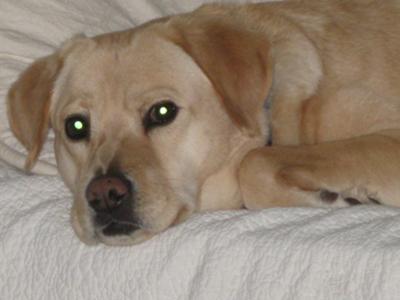Dog Mast Cell Tumor Treatment Approaches?
My four year old Charlie (Lab/Chow mix) had a Mast Cell Tumor (on her lip) and a mandibular lymph node removed Feb 4, 2010. Yesterday, March 24, when I expected her to get her fifth chemo treatment, the doctor found an enlarged lymph node. That lymph node was aspirated. We are now awaiting the histopathology results.
The doctor suggested three possible avenues: CCNU, Palladia, or Kinavet... I am wondering if anyone has any experience with Mast Cell Tumors and any of these treatment approaches. Vinblastine unfortunately did not appear to have worked.
Any response would be greatly appreciated! Thank you.
Mara Levene
Editor Suggestion Dog Cancer Treatment
Dear Mara,
Sorry to hear about your dog cancer problems.
Canine mast cell tumor treatment is done on the basis of the clinical stage of disease and the veterinarian's prediction towards the biological behavior of the tumor. Different stages are based on the involvement of local tissues (the lip in this case), local lymph nodes (mandibular lymph node in this case) and the generalized metastasis of cancerous tissues in other parts of body (has the cancer spread) have been defined for assessment of the clinical stage.
On the other hand, the biological behavior of Mast Cell Cancer in dogs differs with each patient. A definite diagnostic approach and close monitoring is required to determine your dogs exact condition.
According to the brief description provided, the Mast Cell Cancer or Tumor in this case appears to be in Clinical Stage II, i.e. which involves a single nodular tumor on site (lip) and local lymph nodes (mandibular) only. Usually there are four different clinical stages for Canine Mast Cell Cancer. Anyhow, clinical stage is only an assumption, confirmation can only be made through clinical examination and by performing a detailed biopsy.
For treatment, Vinblastine is an antimicrotubule drug, which is effective on certain types of cancers only. It has been proven for cancers occurring on the head and neck region, but it should be remembered that it can only control cancerous
For now, it is important that the latest results are assessed and that the indicated approach for treatment is followed. For a conclusive treatment of dog mast cell cancer, it is always recommended that aggressive surgery is preferred, since chemotherapy has not been proven to be very successful.
In this particular case, probably clinical stage II, a recommended approach is the use of chemo therapeutics, preferably Toceranib (Palladia), which is only chemotherapeutic agent approved for Mast Cell Cancer treatment in dogs, and radiation therapy are needed. Radiation has been proven to be very effective over canine mast cell cancer.
If required, it is recommended that you use aggressive surgery to eliminate dermal and local lymph node cancerous tissues. This tissue should be removed in any way possible, otherwise in stage III or IV, it will be very hard to control the progress of the cancer.
Remember, this assessment is done on the basis of the information you provided and is only a prediction of any possible future development, This should never be considered as a definite conclusion since we are not aware of the exact clinical stage and biological behavior of the canine cancer in your dog.
For additional support, we can recommend that you take good care of your dog, since your dog is under stress (which of course you already do). Spend as much time as possible with your dog, and keep your dog as comfortable as possible. Natural remedies can help to make your dog more comfortable by eliminating possible toxins in the body and by making your dog feel better. These types of natural remedies have been proven to be very effective for supporting pets with any type of cancer. We suggest the product C-Caps as it was formulated specifically to help dogs with cancer and is from a reputable manufacturer.
Best wishes to you and your dog as you undergo another round of canine mast cell cancer treatment. Please keep us up to date on your dogs condition.
Comments for Dog Mast Cell Tumor Treatment Approaches?
|
||
|
||
|
||
|
||
|
||
|
Click here to add your own comments Join in and write your own page! It's easy to do. How? Simply click here to return to Cancer. |


